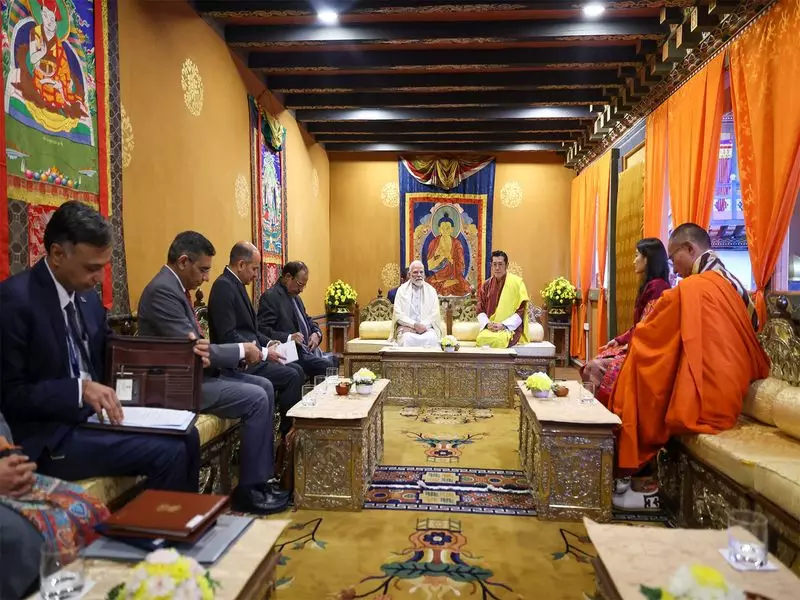
Prime Minister Narendra Modi has concluded a highly significant official visit to Bhutan, reinforcing the special friendship between the two neighboring nations through substantial financial assistance and multiple development partnerships. The two-day visit, which took place on March 22-23, 2024, resulted in the announcement of a major credit facility and the signing of several memorandums of understanding aimed at enhancing bilateral cooperation.
Major Financial Assistance and Development Initiatives
During his visit to Thimphu, Prime Minister Modi held comprehensive discussions with his Bhutanese counterpart Tshering Tobgay, focusing on strengthening the unique India-Bhutan partnership. The most significant announcement came in the form of a ₹4000 crore credit line extended by India to support Bhutan's development projects and economic initiatives.
The financial assistance demonstrates India's continued commitment to Bhutan's growth and stability. This substantial credit line is expected to fund infrastructure development, energy projects, and various socio-economic programs that align with Bhutan's development priorities and India's 'Neighbourhood First' policy.
Comprehensive Bilateral Agreements Signed
The visit witnessed the signing of ten key Memorandums of Understanding (MOUs) covering diverse sectors of cooperation between the two countries. These agreements span multiple areas including energy, trade, technology, education, and cultural exchange, reflecting the comprehensive nature of the India-Bhutan relationship.
Among the notable agreements are partnerships in renewable energy development, digital infrastructure enhancement, and educational exchanges. The MOUs also include cooperation in space technology, agricultural research, and healthcare initiatives, showcasing the expanding scope of bilateral engagement beyond traditional areas of cooperation.
Strengthening Historical Ties and Future Cooperation
Prime Minister Modi's visit marks his first foreign trip after the formation of the new government in Bhutan, underscoring the importance India places on its relationship with the Himalayan kingdom. The timing of the visit, coming shortly after Tshering Tobgay assumed office as Prime Minister of Bhutan, signals India's commitment to working closely with the new administration.
The discussions between the two leaders covered regional security concerns, economic collaboration, and people-to-people contacts. Both sides emphasized the unique character of their relationship, built on trust, mutual respect, and shared cultural heritage. The agreements signed during this visit are expected to further deepen the already strong bonds between the two nations.
The development partnerships established during this visit represent a significant step forward in bilateral relations. India's support for Bhutan's development priorities through both financial assistance and technical cooperation demonstrates the practical implementation of their special friendship. The credit line and MOUs are designed to support Bhutan's economic self-reliance while maintaining the close partnership that has characterized India-Bhutan relations for decades.
This visit follows the tradition of regular high-level exchanges between the two countries and reinforces India's role as Bhutan's primary development partner. The outcomes of the visit are expected to have long-term positive impacts on both countries, contributing to regional stability and economic prosperity.





